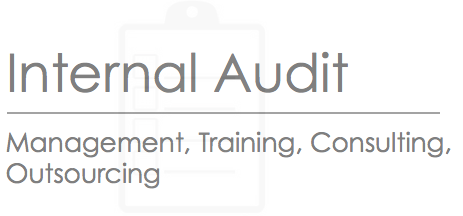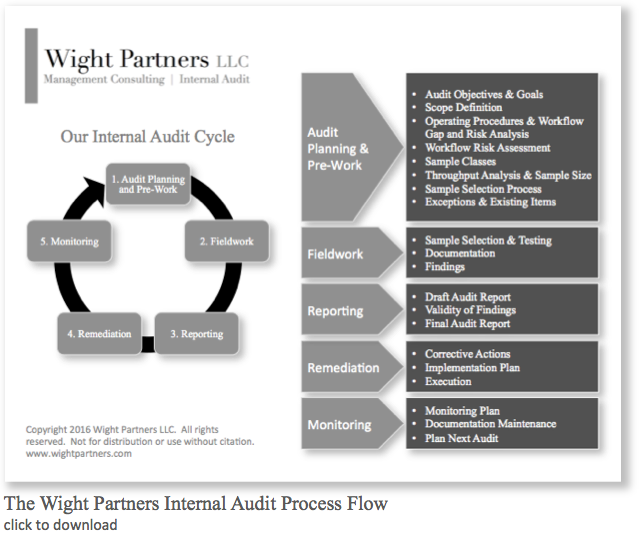
An Internal Audit program is required by many ISO standards. For assistance with design and implementation, staff training, or to outsource it entirely, we can help.
What Is Internal Audit?
An internal audit is a formal review of a business’s operational processes and controls, governance and oversight, risk management, and adherence to policies and procedures.
As defined by the IIA, internal auditing “is a dynamic profession involved in helping organizations achieve their objectives. It is concerned with evaluating and improving the effectiveness of risk management, control, and governance processes of an organization.”
The goal of internal audit is to improve operations and add value to the business.
When do you need an Internal Auditor?
All well-run businesses should have an internal audit performed monthly or quarterly with ongoing review, oversight, remediation, and improvement of processes between formal audits. The time and resources required to complete internal audits depend on the size, complexity, scope, industry, and regulatory environment of a business.
Some businesses outsource this function and some businesses manage this process internally by hiring a Quality Manager. In the latter case, the Quality Manager’s work should be reviewed annually by an outside party to ensure objectivity.
Why Do You Need an Internal Auditor?
- Business owners and CEOs hire internal auditors to ensure their business is being run properly, in the most efficient manner, and with minimal risk.
- Internal audit can prevent or identify fraudulent activities and expose negligent employees.
- Quality accreditations such as ISO require organizations to have a formal internal audit system in place. Also, commendations from chambers of commerce and industry associations can be facilitated when internal audit systems demonstrate an organization’s dedication to quality.
- If an owner/manager is considering delegating management responsibilities or selling the business, a robust internal audit system can give the owner confidence that the business will operate smoothly post-transition. This is especially important to owners who have a continuing interest in the success of the business. It can also facilitate a transaction by demonstrating to banks and investors that a business is being run properly.
- If a business has never had an internal audit system in place it can be critical to ensuring that the business is being run as efficiently as possible and that adequate controls are in place to ensure that costly mistakes are prevented.
